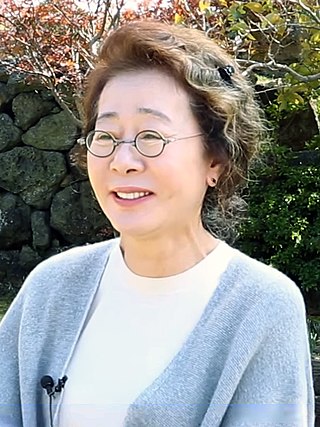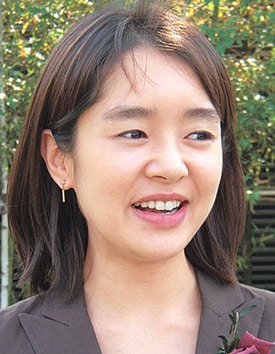| Lists of South Korean films by year |
|---|
 |
| Korean Animation |
A list of films produced in South Korea in 1971:
| Lists of South Korean films by year |
|---|
 |
| Korean Animation |
A list of films produced in South Korea in 1971:

The action film is a film genre which predominantly features chase sequences, fights, shootouts, explosions, and stunt work. The specifics of what constitutes an action film has been in scholarly debate since the 1980s. While some scholars such as David Bordwell suggested they were films that favor spectacle to storytelling, others such as Goeff King stated they allow the scenes of spectacle to be attuned to story telling. Action films are often hybrid with other genres, mixing into various forms ranging to comedies, science fiction films, and horror films.
Seo is a Korean surname and Japanese surname.

Jung is a Latin alphabet rendition of the Korean family name "정", also often spelled Jeong, Chung, Joung or Jong. As of the South Korean census of 2015, there were 2,407,601 people by this name in South Korea or 4.84% of the population. The Korean family name "정" is mainly derived from three homophonous hanja. 鄭 (2,151,879), 丁 (243,803) and 程 (11,683). The rest of the homophonous hanjas include: 政 (139), 桯 (41), 定 (29), 正 (22) and 情 (5).
This is a list of films by year produced in the country of South Korea which came into existence officially in September 1948. The lists of Korean films are divided by period for political reasons. For earlier films of united Korea see List of Korean films of 1919–1948. For the films of North Korea see List of North Korean films. For an A-Z list of films see Category:Korean films.
President most commonly refers to:

Shin Seong-il was a South Korean actor, film director, producer, and former politician. A legendary actor with 500 films in over 40 years, Shin debuted in director Shin Sang-ok's 1960 film A Romantic Papa and rose to fame through popular youth titles. A star in the 1960s and 1970s, his status as one of Korea's top actors extended well into the 1980s.

When a Woman Breaks Her Jewel Box is a 1971 South Korean film directed by Kim Soo-yong. It was awarded Best Film at the Blue Dragon Film Awards ceremony.

Yoon Jeong-hee was a South Korean actress and beauty pageant titleholder who competed at Miss Korea 1964. She debuted in 1967 in Theatre of Youth. She appeared in about 330 films, and her better known works are New Place (1979), Woman in Crisis (1987) and Manmubang (1994). Her last performance was in 2010, in director Lee Chang-dong's film Poetry, for which she won 7 best actress awards including Asia Pacific Screen Award for Best Actress at 4th Asia Pacific Screen Awards, the Grand Bell Award at 47th Grand Bell Awards, and Los Angeles Film Critics Association Award at 2011 Los Angeles Film Critics Association Awards.
Moon Hee is a South Korean actress born in Pusan, July 16, 1947 and has been active since 1965. While attending Seorabeol Art College with a film and theater major, she applied for recruiting new actors by KBS TV. When she was attending for a camera test, Moon was picked up by an assistant director of Lee Man-hee. She was cast to star in Lee's film Heukmaek. She was commonly referred to as one of the "Troika" along with her rival actresses, Yoon Jeong-hee and Nam Jeong-im of the 1960s and early 1970s. Moon Hee retired from the acting career when she married Jang Gang-jae, the vice president of Hankook Ilbo in November 1971 who later became the chair of the newspaper company.
Kim Ji-mee is a South Korean actress, producer, and film planner whose activity began in 1957. She was born in Daedeok, South Chungcheong province, Korea in 1940. While a student of Deokseong Girls' High School, Kim was cast to Kim Ki-young's film, Hwanghon yeolcha (황혼열차) in 1957. Kim has been commonly dubbed "Elizabeth Taylor of Korea" by the South Korean news media for her resemblance with the American actress' appearance and popularity as well as her many marriages and divorces.
Choi Moo-ryong was a South Korean actor, producer, and director who is father of Choi Min-soo

Youn Yuh-jung is a South Korean actress, whose career in film and television spans over five decades. Her accolades include an Academy Award, a Screen Actors Guild Award, a British Academy Film Award, two Independent Spirit Awards, and a nomination for a Critics' Choice Movie Award. She has starred in many South Korean television series and films.
Hah Myung-joong is a South Korean actor, film director, producer, planner, and screenwriter. Hah started his career as an actor, but expanded his career to film directing, and film producing. Hah graduated from Kyung Hee University with a major in English literature. His brother Ha Gil-jong was a film director. His 1985 film Daengbyeot was entered into the 35th Berlin International Film Festival.

Namkoong Won was a South Korean actor. Namkoong was born Hong Gyeong-il in 1934. He was a popular actor of the 1960s along with Shin Seong-il, Shin Young-kyun and Choi Moo-ryong. His son was South Korean politician, Hong Jung-wook. Namkoong died from cancer at the Asan Medical Center in Seoul, on 5 February 2024, at the age of 89.
Events from the year 1971 in South Korea.
Jung Jin-woo is a South Korean film director and producer. Jung made his directorial debut with The Only Son (1963) at the age of 23, setting the Korean record for the youngest person to direct a movie. After finishing Early Rain (1966), one of the most famous teenage movies of the 1960s, he went on to direct The Ran's Elegy (1965), The Secret Meeting (1965), and The Student Boarder (1966), showcasing his superb skills as a film director.
Byun Jang-ho was a South Korean film director.
Freezing Point is the debut novel of Japanese novelist Ayako Miura, first serialized on Asahi Shimbun between 1964 and 1965. The novel won Asahi Shimbun's Ten Million Yen Award.

Lee Ji-eun (Korean: 이지은; 28 August 1971 – 8 March 2021) was a South Korean former actress and model, mainly active during the 1990s. She was known for playing Cho Hyun-ji in the KBS2 weekend soap opera A Sunny Place of the Young, as well as Emperor of the Sea. Born in 1971, she debuted into the showbusiness in 1994 when she modelled for a program called Good Morning on SBS. She received the 1995 Blue Dragon Film Award for Best New Actress for her performance in the film, My Dear Keum-hong.